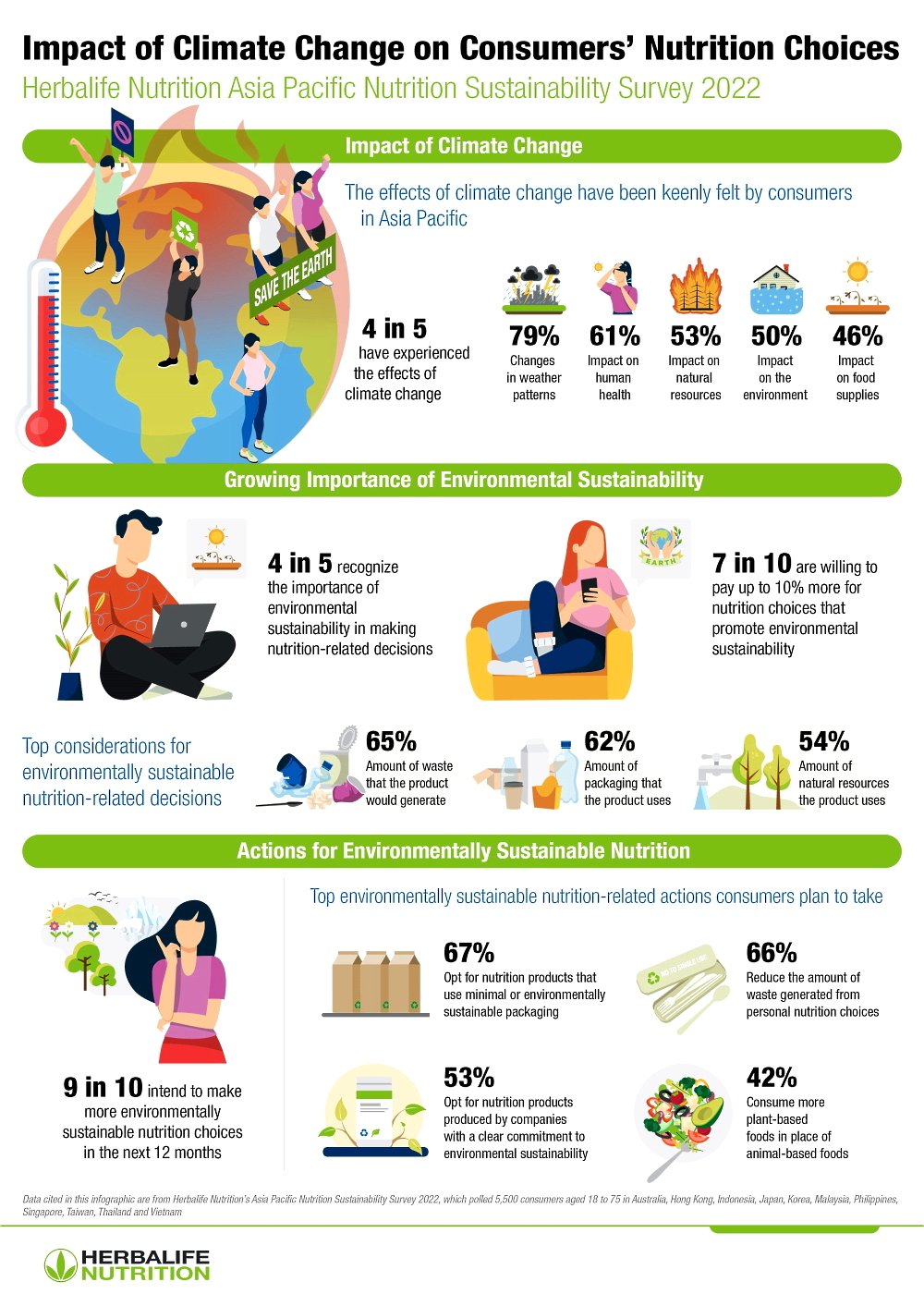
HONG KONG: Nutrition company Herbalife released findings from its Asia-Pacific nutrition sustainability survey, revealing that four in five consumers in the region said they had experienced the effects of climate change (79%), and recognize the importance of environmental sustainability in making nutrition-related decisions (78%).
Conducted this April, the survey polled 5,500 consumers aged 18 to 75 in 11 Asia-Pacific markets, including Australia, Hong Kong, Indonesia, Japan, South Korea, Malaysia, the Philippines, Singapore, Taiwan, Thailand and Vietnam.
The survey shed light on consumers’ attitudes towards sustainable nutrition, the environmentally sustainable nutrition-related actions they intend to take, and the importance of sustainability efforts by nutrition companies.
Among those respondents who consider environmental sustainability important, their top considerations are “the amount of waste generated” (65%) and “the amount/material of packaging a product uses” (62%), when they decide whether to purchase a nutrition product.
Additionally, 76% feel the recyclability of packaging materials is important in making nutrition-related decisions. This is felt most strongly by respondents in the Philippines (93%) and Thailand (89%).
The survey also revealed that close to 80% of regional consumers would pay more for nutrition choices that support or promote environmental sustainability.
Across the different demographic groups, Gen Z/millennials (80%) are more likely to pay more for sustainable nutrition choices, compared to Gen X/boomers (76%). When asked about how much more they would pay, 70% said between 1% and 10%, while 18% are willing to pay from 11% up to 15% more.
According to the findings, 88% said they intended to make more environmentally sustainable nutrition choices over the next 12 months.
The top actions that they plan to make include:
– Opting for nutrition products that use minimal or environmentally sustainable packaging (67%)
– Reducing the amount of waste generated from personal nutrition choices (66%)
– Opting for nutrition products that are sustainably grown, sourced and produced (53%)
– Opting for nutrition products that are produced by companies with a clear commitment to environmental sustainability (53%)
– Consuming more plant-based foods in place of animal-based foods (42%).
The survey also found that 68% Asia-Pacific consumers feel it is important for nutrition companies to offer plant-based alternatives.
For those who intend to consume more plant-based foods, 70% said they wanted to improve their health and well-being, while 64% believe plant-based food options are more environmentally sustainable.
Consumers in Asia-Pacific were candid about who should have the biggest role in enabling environmentally sustainable nutrition choices.
35% said corporations have the biggest role, 34% opted for consumers, while 31% chose the government, indicating that all parties are almost equally important in contributing to the sustainable nutrition cause.
What is most heartening is that nine in ten respondents feel that a company’s recycling program would encourage them to support its sustainability initiatives.

ADVERTISEMENT
ADVERTISEMENT







































